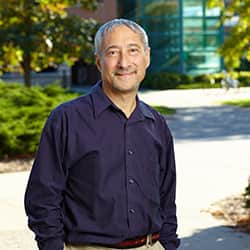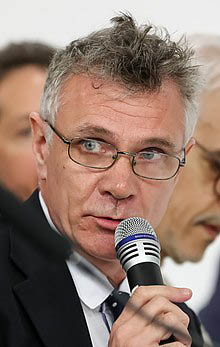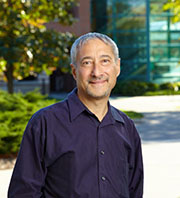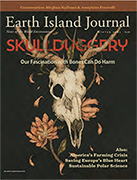
Eric Freedman
Knight Center director Eric Freedman is the lead author of a package of stories on the possibility of climate migrants moving to the Great Lakes region to escape forest fires of Western states, flooding along the saltwater coasts and ever-rising temperatures causing drought in different corners of the continent.
His main story for Crain’s Detroit Business, Crain’s Chicago Business and Crain’s Cleveland Business tackles the question of who may make the move and how well-prepared – or ill-prepared – Great Lakes communities are to accommodate them.
His sidebar looks at how changing environmental, social and economic climates have long fueled other migrations to the region, including settlement by European immigrants and their descendants in the 1800s and the Great Migration of African Americans from the South to the factories of Detroit, Youngstown, Akron, Chicago, Gary and Cleveland in the first half of the 20th century.



 Knight Center director Eric Freedman explores the dark world of illegal trafficking of wildlife skulls in “The Bone Collectors,” the
Knight Center director Eric Freedman explores the dark world of illegal trafficking of wildlife skulls in “The Bone Collectors,” the